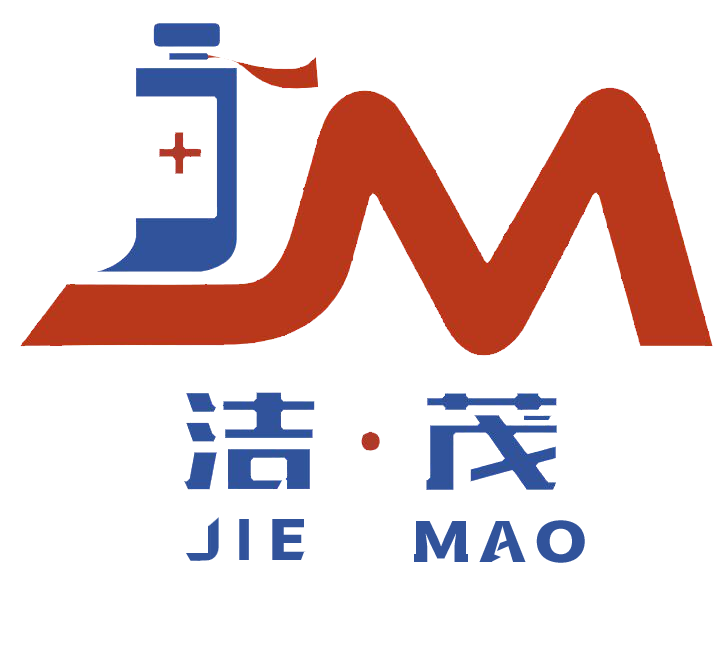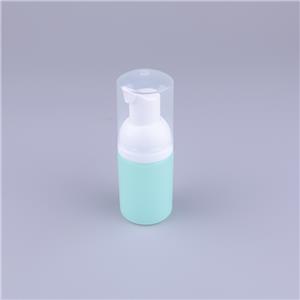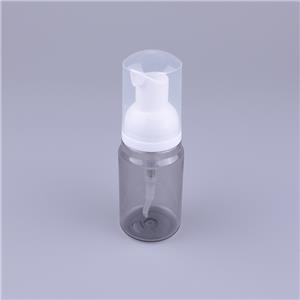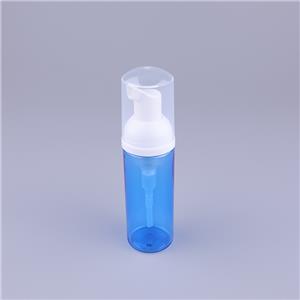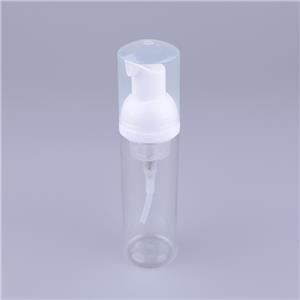- Home
- >
- News
- >
- Public Information
- >
- Special plastic products: core material support for high-end manufacturing
Special plastic products: core material support for high-end manufacturing
Special plastic products, as high-end members of the plastic family, play an irreplaceable role in various key fields of modern industry due to their excellent performance. Compared with general plastics and ordinary engineering plastics, special plastic products can maintain stable performance under more stringent environmental conditions, meeting the strict requirements of high-end manufacturing industries such as aerospace, electronic information, automotive manufacturing, and medical equipment for high-performance and multifunctional materials. They are gradually becoming the core material support for promoting industrial upgrading and technological innovation.
1、 Performance characteristics of special plastic products
The reason why special plastic products can stand out in high-end applications is mainly attributed to their unique and excellent performance, which lays a solid foundation for their reliable application under extreme conditions.
Outstanding heat resistance
The continuous use temperature of special plastic products is generally above 150 ℃, and some products can even work stably for a long time in high temperature environments of 200 ℃ or even 400 ℃. For example, the long-term use temperature of polyetheretherketone (PEEK) can reach 260 ℃ -280 ℃, and the short-term use temperature can soar to 330 ℃. This excellent heat resistance makes it the preferred material in the manufacturing of high-temperature components such as aircraft engines and industrial high-temperature equipment.
Excellent chemical stability
Special plastic products exhibit extremely high resistance to chemical corrosion. Like polytetrafluoroethylene (PTFE), it exhibits inertness towards almost all chemical reagents, making it difficult for strong acids, bases, or oxidizing substances to corrode it. This makes it widely used in chemical pipelines, reactor liners, and other fields, ensuring the long-term safe operation of equipment in complex chemical environments.
Excellent mechanical properties
Although specialty plastic products have relatively low density, they possess the characteristics of high strength and high modulus. Taking polyimide (PI) as an example, its tensile strength can reach 100-300MPa, and it also has excellent fatigue resistance and wear resistance. It can maintain good performance even under long-term alternating loads and friction, meeting the strict requirements for material mechanical properties of aerospace structural components, high-end mechanical parts, etc.
Good electrical insulation
In the field of electronics and electrical engineering, special plastic products have significant advantages in electrical insulation performance. For example, liquid crystal polymer (LCP) not only has a low dielectric constant, but also has minimal dielectric loss, which can maintain stable electrical performance in high-frequency environments and effectively reduce attenuation and interference during signal transmission. Therefore, it has important applications in 5G communication equipment, high-frequency electronic circuit boards, and other fields.
2、 Common categories of specialty plastic products
Special plastic products cover multiple categories, each of which demonstrates irreplaceable value in specific fields due to its unique properties.
Polyether ether ketone (PEEK)
PEEK, as a semi crystalline, thermoplastic aromatic polymer material, has extremely excellent comprehensive properties. It not only has good heat resistance, chemical stability, and mechanical properties, but also excellent processability, and can be made into various complex shaped components through various processes such as injection molding, extrusion, and compression molding. In the aerospace industry, PEEK is widely used to manufacture components for aircraft engines, fuel system components, and casings for aviation electronic equipment; In the medical field, due to its good biocompatibility, it can be used to manufacture high-end medical devices such as artificial joints and spinal implants.
Polyimide (PI)
PI is an aromatic heterocyclic polymer compound containing an imide ring (- CO - NH - CO -) in the main chain of the molecule. Its key properties such as electrical insulation, mechanical properties, and chemical stability remain unchanged over a wide temperature range of -269 ℃ to 400 ℃. In the electronics industry, PI film is an ideal substrate for flexible circuit boards (FPCs), which can meet the needs of miniaturization, lightweighting, and high reliability of electronic products; In the aerospace field, PI materials can be used to manufacture thermal protection layers, insulation components, etc. for spacecraft, effectively resisting extreme temperatures and radiation in the space environment.
Polyphenylene sulfide (PPS)
PPS is composed of alternating arrangement of benzene rings and sulfur atoms, with a regular molecular structure and high crystallinity. It has excellent chemical corrosion resistance and can withstand the erosion of various strong acids, strong bases, and organic solvents. At the same time, it has good thermal stability and can be used for a long time at temperatures ranging from 220 ℃ to 240 ℃. In the automotive industry, PPS is commonly used to manufacture engine peripheral components such as intake manifolds, fuel pump housings, etc., which can effectively reduce component weight, improve fuel economy and reliability of automobiles; In the field of electronic appliances, PPS can be used to manufacture connectors, coil frames, etc., to meet their usage requirements in high temperature and high humidity environments.
Liquid Crystal Polymer (LCP)
LCP is an aromatic polyester material with a large number of rigid benzene ring structures on the main chain, possessing unique liquid crystal properties. During the molding process, LCP molecules can automatically align and form highly ordered structures, thereby endowing the product with extremely high strength and modulus. LCP has a very small coefficient of linear expansion, extremely high dimensional accuracy and stability. In the field of electronics and electrical appliances, especially in the antenna, RF connector, and chip packaging of 5G communication equipment, LCP has become a key material for achieving miniaturization and precision of high-performance electronic devices due to its excellent electrical performance and dimensional stability.
Polyarylethersulfone (PSF)
The main chain of PSF molecules contains sulfone groups (- SO ₂ -) and arylene groups, which can be classified into polysulfone (PSU), polyether sulfone (PESU), and polyphenylene sulfone (PPSU) based on the different synthetic monomers. PSF has good heat resistance, with long-term use temperatures exceeding 180 ℃. At the same time, it has excellent mechanical properties, with a tensile strength of over 70MPa and outstanding resistance to moisture and heat. Its service life in a 145 ℃ steam environment is at least 12 years. In the field of medical devices, PSF is commonly used to manufacture disposable medical products such as hemodialysis membranes and infusion sets. Due to its high safety, it meets the food and hygiene standards of the US FDA (Food and Drug Administration) and the European Union; In the aerospace field, PSF can be used to manufacture interior decorations, electronic equipment casings, etc. of aircraft, which can reduce the overall weight of the aircraft while ensuring structural strength.
3、 Production process and technical difficulties
The high performance requirements of special plastic products determine the complexity and technical difficulty of their production processes, and each type of special plastic has its unique production process and key technical nodes.
Raw material synthesis technology
The synthesis of special plastics often requires precise control of reaction conditions and raw material ratios. Taking the synthesis of PEEK as an example, nucleophilic substitution reaction is usually used, with 4,4 '- difluorobenzophenone and hydroquinone as the main raw materials, and polymerization reaction is carried out in the presence of strong polar solvents and alkali metal carbonates. During the reaction process, factors such as temperature, pressure, reaction time, and purity of the raw materials can significantly affect the molecular weight, molecular structure, and properties of the polymer. Therefore, highly precise process control and advanced reaction equipment are required.
Aggregation process control
During the polymerization process, the polymerization reaction rate, molecular weight distribution, and microstructure of the polymer of special plastics need to be strictly controlled. For example, the polymerization process of PI is usually divided into two steps. Firstly, the binary anhydride and binary amine undergo low-temperature condensation reaction in a polar solvent to generate a polyamide acid prepolymer. Then, the polyamide acid is converted into PI through thermal imidization or chemical imidization. In this process, the degree and method of imidization directly determine the performance of PI, and precise control of reaction temperature, time, and the amount of imidization reagent is required.
Forming processing technology
The molding and processing of special plastic products also face many challenges. Due to its high melting point and high melt viscosity, it requires strict parameters such as temperature, pressure, and shear force for processing equipment. Taking the injection molding of LCP as an example, the injection temperature usually needs to reach 300 ℃ -350 ℃, and the mold temperature also needs to be controlled at a high level to ensure that LCP molecules can be fully oriented and crystallized, thereby obtaining good product performance. In addition, due to the extremely high requirements for dimensional accuracy and surface quality of special plastic products, advanced mold design and precision processing techniques such as high-speed precision injection molding and microforming technology are also needed during the molding process.
4、 Application Fields and Typical Cases
Special plastic products, with their excellent performance, have been widely used in multiple high-end manufacturing fields, becoming a key force in promoting technological progress and product upgrades in various industries.
Aerospace field
In the aerospace industry, the application of special plastic products is extremely extensive. For example, the fuel injection system components of aircraft engines are usually made of PEEK material, which can withstand high temperatures, high pressures, and fuel corrosion, while also reducing component weight and improving engine fuel efficiency and performance reliability. In terms of spacecraft, the solar panel substrate of satellites is often made of PI composite materials. The high strength, low density, and excellent radiation resistance of PI materials can ensure the long-term stable operation of solar panels in harsh space environments, providing reliable energy supply for satellites.
In the field of electronic information
With the rapid development of the electronic information industry, the performance requirements for materials are increasing, and the application of special plastic products in this field is becoming increasingly important. LCP is widely used in the production of antennas and flexible circuit boards in electronic products such as smartphones and laptops. LCP antennas have the characteristics of low dielectric constant and low loss, which can effectively improve the efficiency and quality of signal transmission, meeting the demand for high-speed and high-frequency signal transmission in 5G communication; LCP flexible circuit boards have good flexibility and dimensional stability, which can achieve miniaturization and lightweight design of electronic products.
Automotive manufacturing field
In the field of automobile manufacturing, the application of special plastic products helps to achieve lightweighting and high performance of automobiles. For example, the intake manifold of a car engine is made of PPS material, which can reduce the weight of the intake manifold by 30% to 50% compared to traditional metal materials. At the same time, PPS can improve intake efficiency, reduce engine energy consumption and emissions. In addition, special plastics such as PEEK and PI are gradually being applied in the interior and exterior components of automobiles. For example, PEEK can be used to manufacture adjustment mechanisms and seat belt buckles for car seats, which can reduce component weight and improve the overall performance of the car while ensuring strength and safety.
Medical device field
In the field of medical devices, special plastic products have become ideal materials for manufacturing high-end medical devices due to their excellent biocompatibility, chemical stability, and mechanical properties. For example, PEEK material can be used to manufacture artificial joints and spinal implants. Its elastic modulus, which is similar to that of human bones, can effectively reduce stress shielding between implants and human bones, reduce the risk of implant loosening and fracture, and improve the service life of implants and the quality of life of patients. In addition, PSF materials are commonly used to manufacture the casing and dialysis membrane of blood dialyzers, and their good biocompatibility and chemical corrosion resistance can ensure the safety and effectiveness of the blood dialysis process.
5、 Market Development Status and Trends
In recent years, with the rapid development of the global high-end manufacturing industry, the market for specialty plastic products has shown a steady growth trend. According to market research institutions, the global market size of special engineering plastics has grown from 65.2 billion yuan in 2018 to 94 billion yuan in 2022, with a compound annual growth rate of 9.58% during this period; During the same period, the market size of China's special engineering plastics increased from 7.2 billion yuan to 13.5 billion yuan, with a compound annual growth rate of 16.9%. It is expected that by 2027, the global market size of special engineering plastics will reach 138.2 billion yuan, and the Chinese market size will reach 21.2 billion yuan with a compound annual growth rate of 9.53%. The growth rate of the Chinese market is higher than that of the same period in the world.
Capacity and supply-demand pattern
At present, the global production capacity of specialty plastic products is mainly concentrated in the hands of a few large chemical enterprises in developed countries and regions such as Europe, America, and Japan, such as DuPont in the United States, BASF in Germany, and Baoli in Japan. These enterprises dominate the high-end specialty plastic market with advanced technology and rich production experience. However, with the continuous growth of demand for specialty plastic products in Asian countries such as China and South Korea, as well as the improvement of local enterprise technology research and development capabilities, the proportion of production capacity in the Asian region is gradually increasing. In terms of supply and demand, due to the continuous expansion of the application fields of special plastic products, especially driven by emerging industries such as new energy vehicles, 5G communication, and aerospace, the market demand for special plastic products continues to be strong. However, there is still a shortage of supply for some high-end products, especially those with special performance and specification requirements, which rely heavily on imports.
Technological innovation drives development
Technological innovation is the core driving force behind the development of the special plastic product market. On the one hand, major enterprises and research institutions are continuously increasing their investment in the research and development of special plastic materials. Through molecular design, synthesis process optimization, and the addition of functional additives, they have developed new types of special plastic products with higher performance and better cost-effectiveness. For example, significant progress has been made in the research and development of bio based specialty plastics in recent years. Specialty plastic products prepared from renewable resources, such as bio based polyamides and bio based polyesters, not only have similar properties to traditional petroleum based specialty plastics, but also effectively reduce the carbon footprint of products, meeting the requirements of sustainable development. On the other hand, with the development of intelligent manufacturing technology, the production process of special plastic products is constantly achieving automation and intelligent upgrades. By introducing advanced production equipment and control systems, production efficiency is improved, production costs are reduced, and product quality stability and consistency are ensured.
Application Expansion and Market Prospects
With the continuous improvement of the performance of special plastic products and the gradual reduction of costs, their application fields will be further expanded. In terms of emerging industries, with the vigorous development of the new energy vehicle industry, the application of special plastic products in battery management systems, motor insulation, lightweight body structures, and other areas will experience explosive growth; In the field of 5G communication, with the comprehensive coverage of 5G networks and the continuous enrichment of application scenarios, the performance requirements for special plastic products in signal transmission, electromagnetic shielding, heat dissipation, and other aspects will become increasingly high, providing a broad market space for special plastic products. In addition, special plastic products will play an increasingly important role in fields such as healthcare, environmental protection, national defense, and military industry due to their unique performance advantages. It can be foreseen that the future market prospects for specialty plastic products will be broad and will become an important supporting force for promoting the development of high-end manufacturing worldwide.
